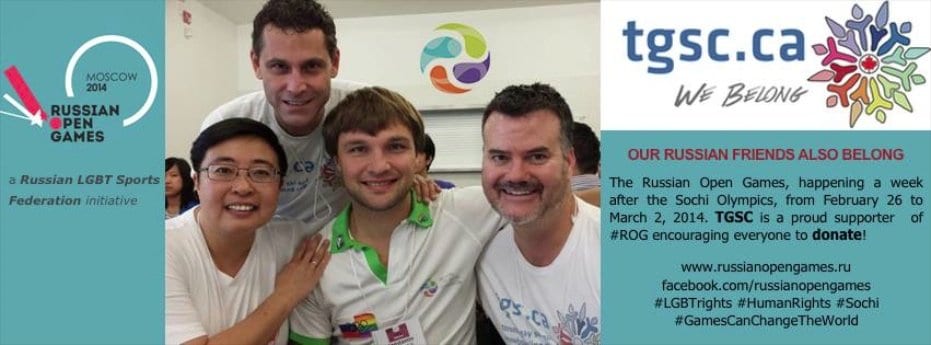The Russian Open Games, an international sports event organized by the Russian LGBT Sports Federation, began in Moscow Feb 26, despite alleged government efforts to shut it down.
Just one day before the opening ceremony, many of the venues booked for competitions, and the majority of the hotels reserved for participants, suddenly declined to participate.
“We are very frustrated,” says Konstantin Yablotskiy, co-president of the Russian LGBT Sports Federation. “We do not know why this is happening. We are a legally registered organization, and the authorities were aware of our arrangements.”
All events were organized with Russia’s recent anti-gay legislation in mind: competitions were to be held in closed, adult-only venues.
Venues and hotels that had accepted reservations months ago contacted organizers Feb 25 to cancel arrangements. Some of the other hotels hosting participants asked guests to check out. Yablotskiy attributes the sudden cancellations to government pressure.
“The excuses that they provided do not make any sense,” he says. “I think it was all planned ahead of time.”
Despite the pressure, the LGBT Sports Federation is determined to persevere.
“We are in the process of finding alternative venues and hotels,” Yablotskiy reports, just hours before the event is scheduled to open. “The opening ceremony will go on as planned, as will the press conference.”
The Russian Open Games, which were conceived one year ago, were not initially intended as a protest action; instead, they were meant to be an attempt to connect with Russian society through a national passion for excelling at sport.
“We realized it was essential to have an event around the Sochi Olympics that would show that the LGBT community is not marginal, as it is represented, but healthy and active,” Yablotskiy explains.
The event, scheduled to run from Feb 26 to March 2, is designed to be inclusive. Participation is not restricted to members of the LGBT community, and there is a wide range of competitions to choose from. Athletes can participate in any number of the eight events, which include swimming, skiing and table tennis. The event’s program also features an educational human-rights component and a social program. There are currently 300 registered participants, including athletes from Canada and the US.
Organizers aimed to position the event as an international and collaborative gathering and, out of respect for the Olympics, chose to open only after Sochi’s closing ceremony. They also reached out to local and international authorities, inviting representatives to attend.
“We directed several requests and invitations to the Russian Ministry of Sports, but we were denied or ignored,” Yablotskiy says.
Despite Russian authorities’ apparent reluctance to attend, the Open Games attracted international support from public figures such as Olympic diving champion Greg Louganis and Edith Schippers, the Dutch minister of health, welfare and sport.
Although frustrated, Yablotskiy is not surprised by the obstacles once again confronting the Open Games. “There were two prior instances when our right to play sports was taken away,” he says. “For our first event in 2010, we were not allowed to enter a venue that we had already paid for because there were families with children inside of the space. We found another venue and the event was a success.”
According to Yablotskiy, the discrimination Russian gay athletes face is hard to combat because it is masked. “You will never get a written document saying you are forbidden to play sports at a venue because you are gay,” he explains. “They will just come up with an excuse like being double-booked. It is impossible to prove that it is happening because you are gay.”
The most important contribution the international community can make, he says, is to continue to discuss and report on human rights issues facing the LGBT community in Russia.
“It is almost impossible for local media to cover what is happening because of the anti-propaganda law,” he points out.
The Federation of Gay Games, which runs the Gay Games and collaborates with the Russian LGBT Sports Federation, has issued a petition on change.org asking Sir Philip Craven, president of the International Paralympic Committee, to boycott the 2014 Sochi Paralympic Games if the Open Games are not allowed to take place.
Dinah Zeldin is a freelance reporter based in St Petersburg, Russia. She covers human rights and environmental issues.

 Why you can trust Xtra
Why you can trust Xtra


